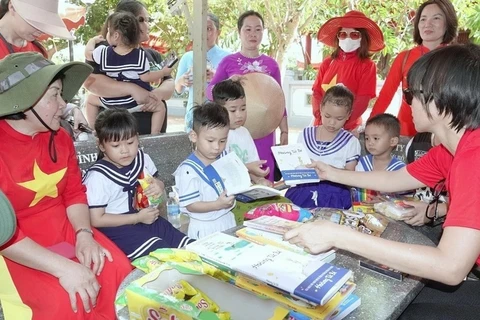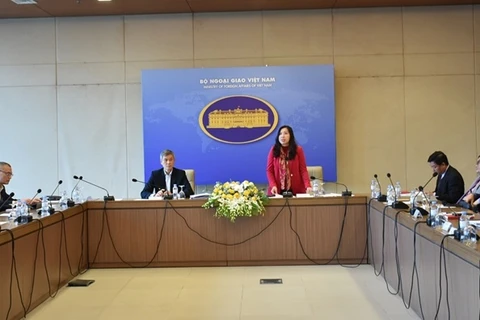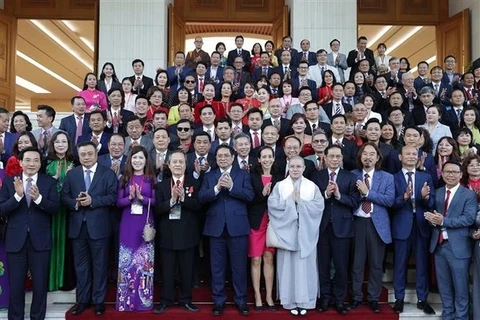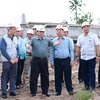 Prime Minister Pham Minh Chinh meets with representatives from the Vietnamese community in Hungary in Budapest (Photo: VNA)
Prime Minister Pham Minh Chinh meets with representatives from the Vietnamese community in Hungary in Budapest (Photo: VNA) Budapest, (VNA) – Prime Minister Pham Minh Chinh met with staff members of the Vietnamese Embassy and representatives from the Vietnamese community in Hungary in Budapest on January 19, as part of his official visit to the European country.
The Vietnamese community in Hungary numbers about 6,000, most of whom live in Budapest and adjacent areas, according to Ambassador Nguyen Thi Bich Thao. She said the community is united and organises many activities to preserve the national cultural characteristics and promote Vietnam’s image in the host society.
Addressing the meeting, PM Chinh mentioned the Politburo’s Resolution 36 on overseas Vietnamese affairs which emphasizes that the overseas Vietnamese are an integral part of the community of ethnic groups of Vietnam.
The Government and National Assembly took many actions in implementing the resolution last year, including addressing issues related to ID cards, visa and property ownership of overseas Vietnamese, he said, pledging more will be done to ensure that the overseas Vietnamese are an integral part of the Vietnamese nation.
He commended the Vietnamese community in Hungary for their unity and contributions to the host country while keeping the national cultural identity and promoting Vietnam, adding that during this visit, he has repeatedly asked the Hungarian government to continue facilitating the integration of the Vietnamese community, including the recognition of the community as an ethnic minority group of Hungary.
The Government leader said Vietnam is researching policies to attract overseas talents and called on Vietnamese scholars and researchers in the world and Hungary in particular to join in scientific-technological research and innovation in Vietnam as well as in the building of an international financial centre in Ho Chi Minh City.
He requested that the Vietnamese Embassy in Hungary to take better care of the Vietnamese community, maintain close connection with the community and support their activities while pushing for the recognition of Vietnamese in Hungary as an ethnic minority group.
Representatives from the community expressed their wish for continued support from the Vietnamese State in connecting them with the country and Vietnamese communities in other countries, promoting the Vietnamese culture, including the teaching of Vietnamese, and facilitating their involvement in projects in Vietnam./.






















